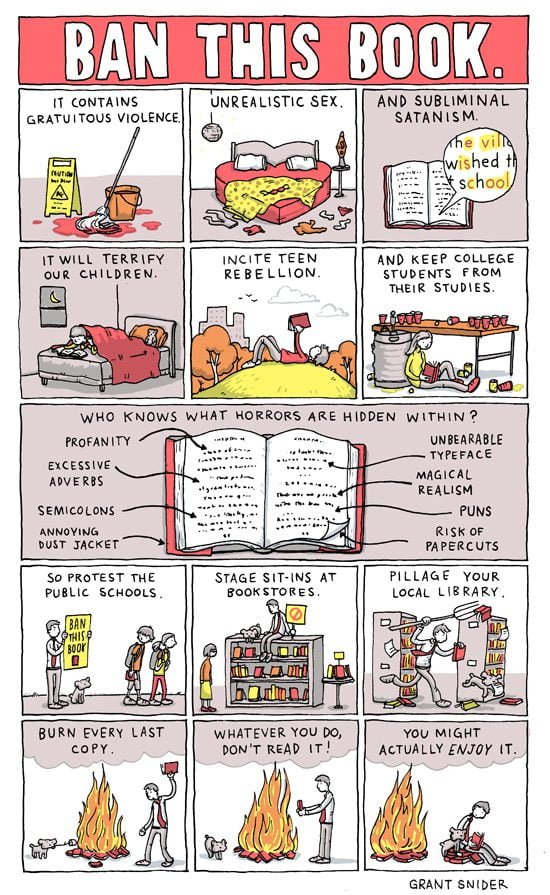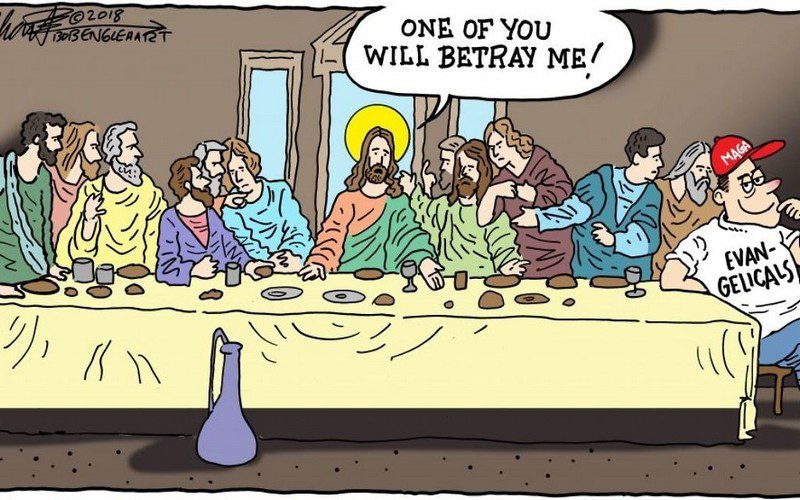
On one level, this is a silly question. Since I do not think there is a God, if I hated God, I would be hating a nonexistent entity. This would be akin to hating Santa Claus, the Easter Bunny, or the Tooth Fairy. However, I understand why religious people might think someone like me hates “their” God. I spend a lot of time writing things that are negative about God and Evangelical Christianity, so surely I must HATE God. Maybe some atheists do hate God, but I don’t. It is a non-issue for me.
As a writer, my focus is on religion — particularly Evangelical Christianity and the Independent Fundamentalist Baptist (IFB) church movement. Religion is the human attempt to answer what I call the “hard” questions of life. Where did we come from? What is the essence, the substance of life? Is there life after death? What gives life meaning and purpose? These are not easy to answer. I realize many atheists will say “no evidence”. . . end of discussion, but I think these kinds of questions are worthy of friendly, thoughtful, pointed discussion. The problem is many religious people can’t discuss these questions in a friendly manner. Thinking their God and belief system are equivalent to “truth,” Evangelicals condemn and marginalize anyone who thinks differently.
While I think evolution is the best answer to the “where did we come from” question, I am not at all satisfied with the answers science gives when dealing with the something rather than nothing question. Even Bill Nye, in his debate with creationist Ken Ham, admitted that, so far, science hasn’t answered the question of where the first particle came from. Of course, Ham, a man with cement in the place where his brain once sat, jumped up and down and said, TEACHER, TEACHER, I KNOW THE ANSWER! IT’S FOUND IN THE B-I-B-L-E. Ham thinks the question is answered, whereas Nye is willing to say, We don’t know, but we continue to try and find the answer to this important question.
I am an atheist because the evidence tells me, at this present moment, that there is no God. As a man who spent fifty years in the Christian church and twenty-five years in the pastorate, I am well versed in the teachings of the Bible and the one, true, and holy Evangelical faith. There’s no possible argument an Evangelical could make that I have not heard. It is not evidence that I am lacking. I have weighed all the available evidence in the balance and found it wanting. I am convinced, based on the available evidence, that the Evangelical God is a work of fiction, and that Christianity is an admixture of myths, legends, oral traditions, and religious teachings. Maybe someday a deity of some sort will reveal itself to us. If so, I will consider this new evidence just like I have the evidence for the plethora of human religions. I doubt this will happen, so I am not going to spend any time worrying about it. In the meantime, I remain agnostic on the God question and live my day-to-day life as an atheist. Reason, skepticism, humanism, family, friends, writing, good food and music, the Cincinnati Reds, and the Cincinnati Bengals are enough for me — no God needed.
My hatred is reserved for certain aspects of some religions. Since I live in the United States, my experience has primarily been with the Christian religion, especially the Evangelical form of Christianity. While I think the essence of Christianity can provide value and substance for some people — even in our modern, scientific world — I am convinced that twenty-first-century Christianity is so far afield from its original intent that it has ceased to be Christianity at all. How does the Christianity of today, in any of its various forms, remotely resemble the teachings of Jesus, the poor, itinerant do-gooder of first-century Palestine?
Part of the problem is that early in the history of the Christian church, the Christianity of Jesus was subjugated by the Christianity of Paul. The modern version of Christianity we see today is Paul’s version of it and not that of Jesus. It is doubtful, at least in my mind, that we can ever recover what Jesus wanted Christianity to be. We can’t even know if he wanted to start a new religion. Perhaps all he wanted was to reform Judaism. We can’t appeal to the Bible because it has been corrupted by errors, corrections, additions, and outright fraudulent changes. At best, we might be able to peer within the pages of the Bible and get a general idea of who Jesus was and what he was all about. And we can do this regardless of whether we consider Jesus divine or not.
When I look at American Christianity, what do I see? I see power, hatred, and wealth. I see arrogance. I see religious machinery. I see everything but what I should see. Where is Jesus? Where are good works? Look at all the Republican candidates for president over the past two decades. Jesus lovers, the lot of them, all trying to see who has the biggest Evangelical dick. Their beliefs and policies would likely be condemned by the Jesus of Nazareth they purportedly worship. Millions of Christians considered voting for these men, thinking they were voting for God’s man. (Please see Why I Hate Jesus.) And that’s precisely what Evangelical voters did in 2016, electing “baby Christian” Donald Trump as president, and attempting to do it again in 2020. Eighty-two percent of voting white Evangelicals voted for Trump. By doing so, Evangelical Christians traded their souls for a bowl of pottage, choosing power and preferential treatment over morality, ethics, and decency.
It seems that most churches and pastors are focused on building a kingdom, not in Heaven, but here on earth. Why all the fancy, expensive buildings? Why all the programs designed to keep fat, lazy sheep fed and happy? Why does most church income go to maintain buildings, pay staff, and provide programs for people who are already Christians? What happened to outreach to the “least of these?” Where can I find a church where the poor, sick, homeless, and dying are given preferential treatment? If Jesus were alive today, do we really think he would go to an American Evangelical church? I don’t.
Even though I don’t believe in the Christian God — nor do I think the Bible is divine truth — I could see myself going to a church that took seriously the teachings of the man named Jesus. (And yes, I am aware that some of his teachings are contemptible.) I still have a heart filled with compassion for the poor, sick, and marginalized, and I suspect many of the readers of this blog do too. As atheists and agnostics, we don’t have many meaningful opportunities or outreaches to help others. Imagine the help we could lend to churches focused on helping others instead of building kingdoms in this life.
I wonder if there is any room in the world for itinerant atheist preachers? While I couldn’t preach the Christian gospel of salvation in Jesus Christ, I could preach a humanist gospel, a gospel that says salvation is found in the goodwill, mercy, and compassion we have for others. I could point to the teachings of Jesus, Buddha, and Bruce Almighty and show how the relevant parts of their teachings can help make us better human beings.
My hatred is reserved for any religion that is focused on power and wealth, and not people. For the most part, I despise Evangelical Christianity. To Evangelicals, words in a book are more important than loving their neighbors and helping the poor, the hungry, widows, orphans, prisoners, and the homeless. They prefer the narrowness of their religion to the wideness of human love, mercy, and compassion. They would rather concern themselves with abortion, same-sex marriage, immigration, gun rights, combatting socialism, refuting global warming, evolution, and getting Republicans elected, than trying to make a real difference in the lives of the “least of these.” Thinking evangelizing someone is more important than feeding and clothing them (better to go to Heaven with an empty belly, than Hell with a full one, the thinking goes), Evangelicals are viewed by non-Christians in the same light as door-knocking Jehovah’s Witnesses, Mormons, and siding salesmen.
My beef is not with God because I don’t think there is a God. My beef is not with Christians who are serious about loving and helping others. My disdain, and at times my anger, is reserved for those who have no regard for the plight of the poor and the sick, who only care about building a kingdom here on earth. No matter how much they talk about the future kingdom of God, their actions betray their true ambitions.
If churches took the teachings of Jesus seriously, they would merge, sell off the excess real estate, and use the money to help the poor, sick, and disadvantaged. If churches took the teachings of Jesus seriously, they’d fire all the professional Christians, forcing them to get real jobs. In doing so, these professional Christians would be forced to reengage with a world they lost connection with once they became gatekeepers and waitstaff at the local Evangelical churches.
If churches took the teachings of Jesus seriously, they’d stop programs that are little more than crack for religious junkies. These addicts bounce from church to church, program to program, service to service, hoping to get a Jesus Fix®. They are narcissists who have forgotten that what really matters is loving their spouses, children, family, and neighbors. They’ve traded the church for their common, dirty connection with the world. Sheltered from sinners, they listen to sermons that remind them of how wonderful it is in the church and how bad it is out there.
I don’t hate God. My hatred is reserved for evil done in the name of God. (Please see the Black Collar Crime series.) My hatred is reserved for those who value theological fealty, fidelity, and conformity more than they do people. Such thinking caused the burning of people at the stake and the slaughter of countless heretics. Given a chance here in America, Evangelicals with theocratic impulses would enact and enforce a Christian version of Sharia law. I hate all who dare attempt the subjugation and control others in the name of their God. Thinking they are oracles who have THE truth, they demand everyone else bow to their truth. Willing to use violence and the power of the state to force others to embrace their God and Holy Book, they cause deep hatred and resentment. Thinking they are being hated for their beliefs, what they are really being hated for is their unwillingness to allow others to have the same freedoms they demand for themselves.
As I look at American Christianity, I search in vain for one good reason that I would/should become a Christian. Maybe there is a group somewhere that takes the teaching of the socialist Jesus seriously, but so far all I see is ice cream. Various flavors, but all ice cream. (Please see But, Our Church is DIFFERENT!)
Bruce Gerencser, 66, lives in rural Northwest Ohio with his wife of 45 years. He and his wife have six grown children and thirteen grandchildren. Bruce pastored Evangelical churches for twenty-five years in Ohio, Texas, and Michigan. Bruce left the ministry in 2005, and in 2008 he left Christianity. Bruce is now a humanist and an atheist.
Connect with me on social media:
Your comments are welcome and appreciated. All first-time comments are moderated. Please read the commenting rules before commenting.
You can email Bruce via the Contact Form.











